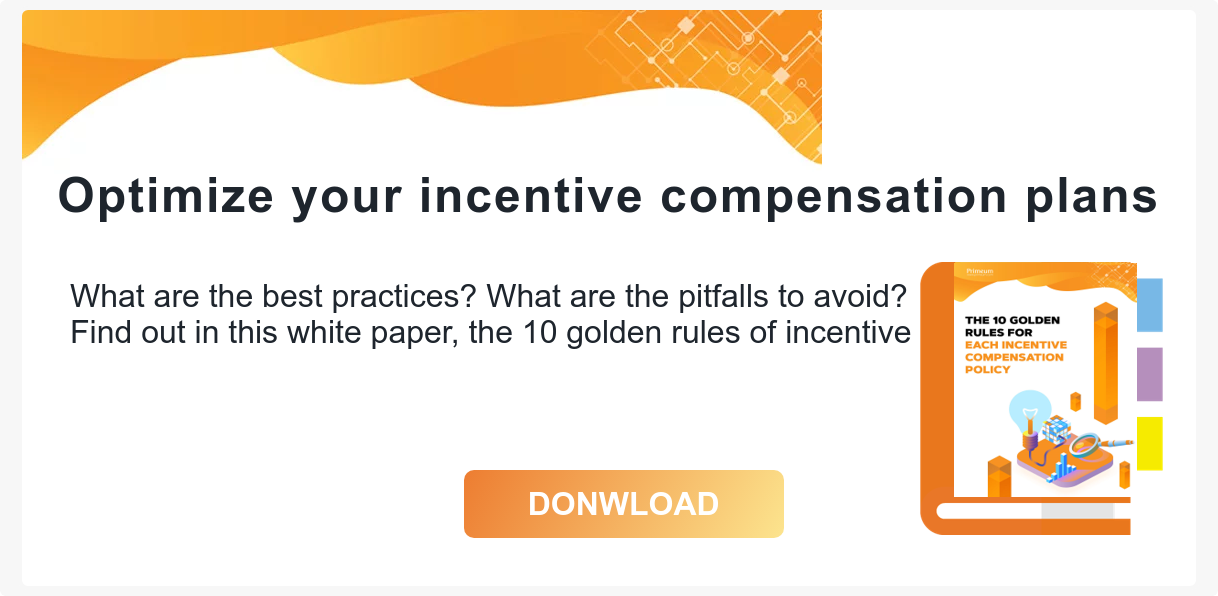They are so common that we almost forget their definition and their primary objectives. Look back at the most commonly used terms across the lexicon of incentive compensation.
SALES VERSUS TARGET BONUS
Approved by companies to boost the individual scores, but also collective, the sales versu target (SvT) bonus on is not only dedicated for commercial functions. It allows to take into account criteria both quantitative (revenue collected ...) and qualitative (customer satisfaction ...). It also offers the advantage of taking into account the potential of each by well differentiating the level of requirement of different employees, as well as ensuring better budget control. That's what makes it the motivation lever ultimately for teams.
COMMISSIONING / COMMISSIONS
Indexed to turnover excluding taxes, quantity sold, gross margin, etc., the commissioning system focuses on the principle "The more I sell, the more I earn". The commission is also rarely capped, which can be an unmatched source of motivation by your sales teams. This advantage, and the facility to set it upe, explain its success. Unlike the SvT, the commissioning is only focused on quantitative objectives, which can not necessarily be adapted to all business strategies.
PROFIT SHARING
Profit sharing is a savings plan that any company can set up by agreement. The objective here is to collectively associate employees with the results or performance of the company. Its calculation is indicated in the company's profit-sharing agreement and its amount is capped. Employees may elect to receive this bonus immediately, in whole or in part, or place it on a savings plan.
EMPLOYEE FINANCIAL PARTICIPATION
The employee financial participation (EFP) is a scheme whose objective is to benefit the employees of the good results of the company. This bonus provides for the redistribution of part of the profits of the company to the benefit of employees. In France, it is mandatory when the company employs 50 employees for 12 months, consecutive or not, during the last 3 financial years. As with profit-sharing, the amount of the participation is capped. In addition, employees can request the immediate payment of the sums or place them for 5 years.
RANKING BONUS
As its name indicates, the amount of this bonus varies according to the ranking of the employees, this ranking being determined according to determined, precise, objective criteria, defined upstream by the Management. This bonus system has the advantage for the company that the total cost is fixed: an amount has been determined in advance. This is allocated to each place in the ranking. The amount decreases with ranking rank. The downside, this system does not require that the company requires a given result. It means that performance is perceived here as an internal competitiveness, with a bonus depending entirely on the performance of each other.
CHALLENGE
The game is a particularly effective lever to boost motivation, with fewer constraints. Playful and dynamic, the challenge is a factor of team cohesion as well as a way to train the teams. While the bonus on purpose aims to motivate salespeople in the long term, the challenge is particularly effective over a short time. It allows to focus on a particular item, for example for the launch of a new product.
“FRIDGE” EFFECT
The "fridge" technique consists of slowing down the sales process on a performance cycle and postponing these sales to the next cycle. This system appears especially when a beneficiary no longer has a prospect of winning on the current cycle. To avoid this, it is preferable to use continuously evolving compensation curves. Objective: not to have stairs producing deleterious threshold effects in terms of motivation.
If you are an SME or a Start-up, our professional tool dedicated to incentive compensation allows access to curve database and set up a variable pay system free of any threshold decreasing the effect of fridge and adapted to all teams.
Contact us to benefit from personalized support and define the most appropriate incentive compensation system for your situation.





